1999 Nissan Altima Tires & Services
Get Started
Complete Auto Care for Your 1999 Nissan Altima
-
TIRES FOR YOUR 1999 Nissan Altima View Tire Info GET TIRE PRICING
-
REPAIR FOR YOUR 1999 Nissan Altima View Repair Info SCHEDULE REPAIR
-
MAINTENANCE FOR YOUR 1999 Nissan Altima View Maintenance Info SCHEDULE MAINTENANCE
-
OFFERS FOR YOUR 1999 Nissan Altima Limited Time Tire Offers VIEW ALL COUPONS
1999 Nissan Altima Tires
Recommended Tires | Tire Information
1999 Nissan Altima Tires Sizes, Speed Ratings, and Inflation
Not sure about your 1999 Nissan Altima tire size? Use the following chart to find information on tire size, speed rating, and inflation.
| Trim Level | Speed Rating | Inflation in PSI F/R | Tire Size |
|---|---|---|---|
| 1999 Nissan Altima SE | H | 29 PSI/29 PSI | P205/60R15 |
| 1999 Nissan Altima GXE | T | 30 PSI/29 PSI | P205/60R15 |
| 1999 Nissan Altima XE | T | 30 PSI/29 PSI | P195/65R15 |
| 1999 Nissan Altima GLE | T | 30 PSI/29 PSI | P195/65R15 |
|
1999 Nissan Altima SE Speed Rating: H Inflation F/R: 29 PSI/29 PSI |
|
1999 Nissan Altima GXE Speed Rating: T Inflation F/R: 30 PSI/29 PSI |
|
1999 Nissan Altima XE Speed Rating: T Inflation F/R: 30 PSI/29 PSI |
|
1999 Nissan Altima GLE Speed Rating: T Inflation F/R: 30 PSI/29 PSI |
* Note: these models have different tire sizes depending on vehicle options.
Recommended Tires for Your 1999 Nissan Altima
What tires are best for a 1999 Nissan Altima? Check out the following tire brands and types.
 Blizzak WS90
Blizzak WS90
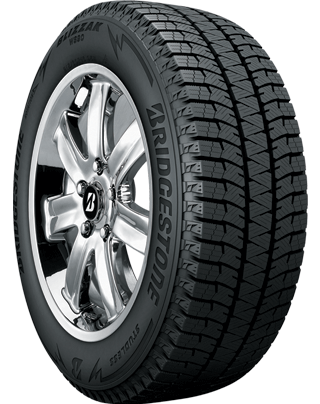
- No warranty
- Winter
- Winter
 Turanza QUIETTRACK
Turanza QUIETTRACK
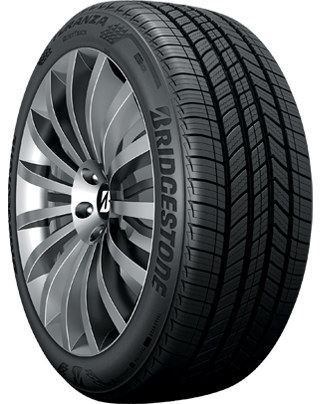
- No warranty
- All-Season
- Performance
 WEATHERPEAK
WEATHERPEAK
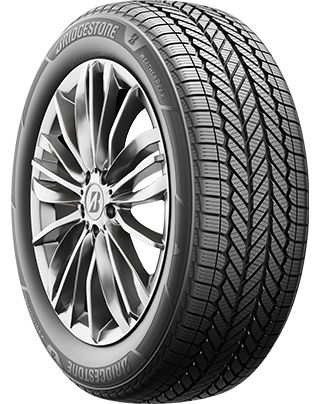
- Platinum Pact Limited Warranty
- All-Season
- Passenger Tires
 Ecopia EP422 Plus
Ecopia EP422 Plus
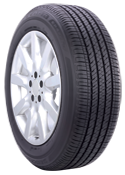
- Platinum Pact Limited Warranty
- All-Season
- Performance
 Affinity Touring S4 FF
Affinity Touring S4 FF
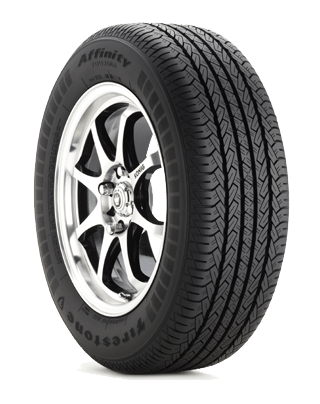
- Gold Pledge Limited Warranty
- All-Season
- Passenger Tires
 ALL SEASON
ALL SEASON

- No warranty
- All-Season
- Passenger Tires
 FT140
FT140
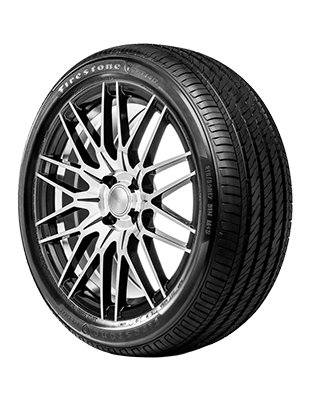
- No warranty
- All-Season
- Passenger Tires
 WEATHERGRIP
WEATHERGRIP
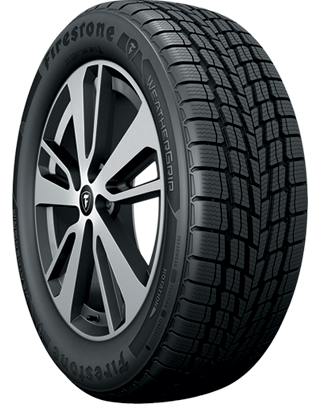
- No warranty
- All-Season
- Passenger Tires
 Winterforce 2
Winterforce 2
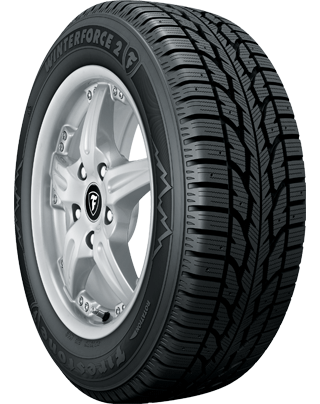
- No warranty
- Winter
- Winter

- No warranty
- All-Season
- Passenger Tires

- No warranty
- All-Season
- Passenger Tires
 Extensa A/S II
Extensa A/S II

- No warranty
- All-Season
- Passenger Tires
Choosing 1999 Nissan Altima Tires
Other than getting the proper tire size, you also want to consider a handful of other factors when buying new Nissan Altima tires like where and how you drive, and what tire brand you trust most. Think about where you live (countryside vs. city vs. mountains) and the kind of unexpected weather you're likely to experience when evaluating your driving conditions. Drivers in states that fully experience all four seasons often buy two sets of tires: one for summer and one for winter. Other drivers buy one set of all-season tires instead. That way they don't have to return to the tire shop and their vehicle is always ready for sun, rain, and light snow!
Your personal driving style is the next factor to consider. If you're a diehard off-roader, you have very different tire needs than a highway commuter who doesn't leave the paved path. Browse Nissan Altima tires online or come to your nearby Firestone Complete Auto Care for help selecting the tire that's right for you.
Installing Nissan Altima Tires
Firestone Complete Auto Care has been a leading tire provider for more than a century. We're your one-stop shop for tire installation, rotation, and ongoing maintenance! We make it easy to buy new 1999 Nissan Altima tires online and book an installation appointment at the same time.
1999 Nissan Altima Tire Q&A
-
Why check Nissan tire inflation? The right tire pressure can make all the difference. Proper tire inflation helps increase fuel economy, improve braking time, and boost tire lifespan! Even a small change in tire pressure can impact your driving.
-
What do the numbers on my Nissan Altima tires mean? The numbers on your tire sidewall give you information about tire speed rating, traction, treadwear, tire size, and load carrying capacity. Chat with a tire technician to learn how to read the numbers on your Nissan tires!
-
Can I check the tread depth on my Nissan tires at home? Stay on top of your tire tread depth to help avoid a dangerous drive. You can check tread depth with a penny. Hold the penny so that Abraham Lincoln is facing you, then place your penny into a tread groove upside down. If you can see the top of Abe’s head, your tread is shallow and it might be time for new Nissan Altima tires. Grab a penny. Hold the so that Abe Lincon's head is facing you and his hair is pointing toward the ground. Then, place the penny into a tread groove. If you can see the top of Abe’s head, your tread is shallow and it might be time for new Nissan Altima tires.
1999 Nissan Altima Repair
When to repair, when to replace? Click on a repair below to learn more about Nissan Altima repairs at Firestone Complete Auto Care.
1999 Nissan Altima Repair Information
For most drivers, the words “car repair” don’t exactly spark excitement. But at Firestone Complete Auto Care, we strive to give you the excellent repair experience you deserve. When it’s time for 1999 Nissan Altima repair services, head to your nearest Firestone location and rest easy knowing that your Altima is in capable hands. We'll work to evaluate the scope of repairs needed and explain your options. We’ll never recommend a repair we don’t think is necessary for your safety or the performance of your Nissan.
How Much Are Nissan Altima Repairs?
Several factors can affect the cost to repair your 1999 Nissan Altima, including the type of repair, the cost of any replacement parts, how much labor the repair will take, and the state you live in. But no matter your location, you may be able to save money with one of our many auto repair coupons or offers.
A few different aspects can influence repair costs for your 1999 Nissan Altima, like
1999 Nissan Altima Auto Repair Questions
-
Can scheduled maintenance help me avoid repairs? The cheapest 1999 Nissan Altima repair is the one that isn’t necessary in the first place! Staying up-to-date with your car’s scheduled maintenance services is a great way to keep future repair costs low.
-
What does it mean to be 'in tune' with your car? You know your vehicle. You also know when something feels 'off' with your vehicle. Pay attention when things don't run like they used to and stop by for a Courtesy Check when you notice an unusual sign, smell, or sensation. We might be able to help you prevent Nissan Altima repairs!
-
Are the repairs you recommend for my Nissan actually needed? We won’t recommend a service or repair for your 1999 Nissan Altima unless we think it’s necessary to keep you safe. Want to know more about a specific recommended repair? Ask! We’re here to help.
Get Your 1999 Nissan Altima Brakes Fixed
You might have a strong and reliable engine in your Nissan Altima. But if you can’t stop it, it’s as good as scrap metal. If you’re experiencing squeaky brakes or a loss of braking power, don’t wait! Safe driving is difficult when your brakes are anything but their best. What's more, waiting for things to figure themselves out can result in more damage to your brakes and your wallet. Go to your local Firestone Complete Auto Care for 1999 Nissan Altima brake repairs. We offer a variety of brake services like pad/shoe replacement, brake rotor/drum refinishing, brake fluid exchange, and brake caliper and wheel cylinder service.
Answers to Your Altima Brakes Questions
-
What is causing my Altima to shake when I brake? Feeling shaking or vibrating in your Altima as you brake might indicate a few different problems, including worn brake pads or rotors, loose suspension components, damaged brake calipers, or warped rotors. Book an appointment for a free brake inspection as soon as you notice a problem with your brakes.
-
How often do I need to replace my Altima brake pads? In general, brake pads can last from 30,000 to 40,000 miles. Certain factors, like driving on highways mostly and braking smoothly, can help your brake pads last longer. Hauling heavy loads and riding your brakes can shorten brake pad lifespan.
-
Should my Altima be leaking brake fluid when the car is off? Because your Altima brake system is a closed hydraulic system, it should not leak brake fluid. However, if components in your brake system have worn out or been damaged, it might cause brake fluid to leak.
Repairing Your Nissan Altima Drivetrain
Drivetrains for front, rear, and all-wheel-drive and 4WD vehicles are quite different, so you don't want to go to just anyone for drivetrain repair. You want to visit Firestone Complete Auto Care. We can take care of most 1999 Nissan Altima drivetrain components Your Altima might need driveshaft repair if you notice heavy vibrations in your floorboards, clunks when shifting, resistance when turning, or vibration as your vehicle accelerates.
Questions About 1999 Nissan Altima
-
What are signs my Nissan drivetrain is damaged? Your Nissan Altima drivetrain might be damaged if you notice strange noises from the rear of your vehicle, see fluid leaking, or have issues turning.
-
What triggers the malfunction indicator light (MIL) in a Altima? The malfunction indicator light — also known as the check engine light — on your Altima can illuminate for a variety of reasons, including engine issues, electrical problems, damaged sensors, transmission problems, misfires, and faulty connections.
-
Is a drivetrain malfunction in my Altima serious? A drivetrain malfunction in your Altima should never be taken lightly. Driving with a malfunctioning drivetrain can put you in danger and lead to further vehicle damage, so it's essential to have a qualified mechanic assess and repair the problem as soon as possible.
Wheel Alignment for 1999 Nissan Altima
Alignment services involve precise adjustments to your Nissan Altima’s suspension system, the connection between the vehicle and the wheels. In an alignment service, your tire angles are adjusted according to measurements recommended by Nissan. Why? So that your tires can make contact with the road at the best possible angle. When you bring in your 1999 Nissan Altima, we’ll perform an alignment check first. After that, we can adjust your wheel alignment angles until they match Nissan’s recommended measurements.
Answers to Nissan Altima Alignment Questions
-
Are there road conditions that can hurt my Nissan Altima alignment? Potholes and uneven roads can knock your car out of alignment, so stay aware of the road ahead and adjust your speed (or avoid these obstacles whenever it’s safely possible).
-
How often should you get a wheel alignment for your Altima? Typically, your alignment should be checked every 6,000 miles or 6 months, whichever comes first. Double-check your Altima owner’s manual for Nissan's exact recommended schedule.
-
Do you need to get your Altima wheels aligned when you get new tires? It’s likely not a requirement to get an alignment when you install new tires on your Altima, but it's a smart idea to do so anyway. An alignment can help ensure even tire wear, smooth handling, and better fuel efficiency.
Engine Repairs for Your 1999 Nissan Altima
If your 1999 Altima engine needs repairs, our expert techs will let you know what needs to be done and why before they get started. We never do any work without your sign-off. If a repair can wait, we'll let you know. If it's necessary for your safety, we'll make sure you understand that, too. We seek to give you all the info you need to make a smart decision about our services. Choose Firestone Complete Auto Care for Nissan Altima engine repairs and you can drive easy knowing that we use Nissan-approved parts and fluids — timing belt, oil gasket, sensors, or a different component.
Engine Q&A 1999 Nissan Altima
-
Why does the check engine light come on when I start my Altima? It's okay if your check engine light comes on when you first start your vehicle. This is a sign that your vehicle is testing its circuits. The light should go off shortly. Bring your vehicle in if it doesn't.
-
Why does my Nissan engine sound different? Strange under-the-hood noises can point to problems within your Nissan Altima engine. Tapping or knocking could mean you need an oil change. Whistling sounds could mean you have an intake leak or misaligned belt. Squealing may be caused by a loose fan belt, and grinding could be a sign that something is wrong with your brakes — not the engine.
-
What could damage a Nissan engine? Certain driving habits can hurt your engine. These habits include driving on an empty fuel tank, revving your engine while the vehicle is in Park, or slamming the gas pedal while the engine is still cold. Steer clear of these habits to help protect engine performance and efficiency.
1999 Nissan Altima Tire Repair
If your 1999 Nissan Altima is in need of a tire inspection or possible flat tire repair, Firestone Complete Auto Care has your back. In some cases, a tire doesn’t have to be replaced – it can be plugged and patched with a simple repair. Depending on the damage, though, a repair might not be the right move. Our technicians can determine which option is best for your situation. To start, we’ll consider the location of tire damage, the type of issue, the size and scope of the damage, and the amount of wear on your tires.
If your 1999 Nissan Altima tire puncture can be repaired, we'll follow three basic steps to repair it: (1) Separate the tire from the vehicle wheel, (2) fill in the area that’s been punctured to prevent damage from moisture, and (3) seal the inner liner with a repair unit to prevent air loss.
Frequently Asked Nissan Altima Tire Repair Questions
-
What happens if I drive my Nissan on a flat tire? Driving on a flat or underinflated tire can put extra stress on your wheels and alignment. While it’s sometimes necessary to drive a short distance on a flat tire to get to a safe place, don’t take any other trips in your Altima until you can have the flat tire repaired or replaced.
-
Can I use an emergency/temporary sealant to fix my Nissan's flat tire? Temporary sealants will solve your problem… for a little bit. If you’ve seen temporary or emergency tire sealant before (it usually comes in a can), it can be tempting to turn to this as a solution for your flat tire. Keep in mind that these fixes could buy you some time to get to Firestone Complete Auto Care for a proper repair, but they could also cause some harm in the process (for example, damage to your TPMS). Plus, using a product like this could void your tire warranty.
-
Why do the tires on my Altima keep losing air? If your Altima tires are always losing air, you may have a puncture, damaged wheel, or leaking valve stem.
Maintenance for Your 1999 Nissan Altima
Take care of your Nissan Altima and it'll take care of you. With the right maintenance at the right time, your Altima has a good chance of hitting 200,000 miles or more.
About 1999 Nissan Altima Scheduled Maintenance
It can be overwhelming, but fortunately, there’s a resource that takes the guesswork out of routine Altima maintenance. Just follow your 1999 Nissan Altima maintenance schedule! This recommended maintenance schedule is written by the auto manufacturer, Nissan themselves. Scheduled maintenance services can vary depending on driving conditions, climate, and other factors; in most cases, though, recommended maintenance will consist of services like fluid exchanges, filter changes, new brake pads, oil changes, and tire rotations. Staying on track with routine service appointments can help your Altima perform better, increase your vehicle safety, and help you avoid expensive repairs caused by 1999 Nissan Altima problems later.
Overview of Essential Nissan Altima Maintenance Needs
Head to your nearest Firestone Complete Auto Care in your 1999 Nissan Altima for factory-recommended routine maintenance and our technicians will jump right in with a Courtesy Check. A Courtesy Check helps "set the stage" for your service and catch any small problems before they turn into big repairs. Every Courtesy Check will include a visual inspection of your Altima. We’ll check your head and tail lights, fluid levels, filters, tires (and their alignment!), and windshield wiper blades. We’ll also perform a free battery check to determine your battery’s charge level.
Firestone Complete Auto Care is the place to go for 1999 Nissan Altima maintenance. Don’t wait until something goes wrong with your car. Visit your nearest location for proactive maintenance today.
1999 Nissan Altima Maintenance Questions
-
What should I do after hitting a pothole in my Nissan Altima? Check your car for pothole damage! If you’ve recently hit a pothole (or even if you don’t remember hitting one… they can be sneaky!) check your tire treads, tire sidewalls, and wheels for damage. Potholes can also knock your car out of alignment, so have your alignment checked if you suspect you’ve driven over a rough patch of road lately.
-
When should I use high mileage oil in my Nissan Altima? Got 75,000+ miles on the odometer? Consider high mileage motor oil. High mileage oil is formulated to address the specific problems encountered by high mileage vehicles, or those with more than 75,000 miles. It can help reduce oil consumption, smoke, and emissions from older Nissan Altima engines.
-
Can I ignore dashboard lights on my Nissan? It's better to get them addressed as soon as possible. An illuminated dashboard light means something in your vehicle isn't functioning like it should. Letting problems linger can mean bad news for your Nissan Altima, so be sure to take your car in for service as soon as you notice an illuminated dashboard light.
1999 Nissan Altima Battery Replacement & Size
Not sure what battery to get for your Nissan Altima?
| Battery | Engine | Warranty | Cold Cranking Amps | |
|---|---|---|---|---|
| 24F-3 | L4/2.4L | Replacement 24 months | Performance months | 650 |
| 24F-6 | L4/2.4L | Replacement 36 months | Performance months | 750 |
| 24F-RP | L4/2.4L | Replacement 48 months | Performance months | 750 |
1999 Nissan Altima Car Batteries
Generally, car batteries last from three to five years. Don’t get stranded by your Altima’s car battery. Replace it regularly instead! Look out for symptoms of a faulty car battery. A sluggish engine start, an illuminated check engine light or battery signal, swollen battery case, corroded battery posts, or faded headlights can all be signs that your battery needs attention.
Plus, at Firestone Complete Auto Care, we’ll test your battery for free. Visit us for a complimentary battery check and, if necessary, a battery replacement to help keep your 1999 Nissan Altima running! Car batteries are one of our many specialties! Our technicians are familiar with Nissan-specific recommendations for Altima battery CCAs and reserve capacity. Get help figuring out the battery size that matches your vehicle, and schedule a weekday or weekend battery replacement service for your car.
Answers to Your Nissan Altima Car Battery Questions
-
Why won't my Nissan Altima battery stay charged? A car battery that needs to be jump-started every time is as good as dead. It may be getting old. Or, you’ve been leaving the doors slightly open and the dome lights on during the night. Stop in for a free battery check at your nearest Firestone Complete Auto Care and learn more about your battery's charge.
-
What is the average lifespan of a car battery? Car battery lifespan varies depending on a few factors, including driving conditions, accessories, how well it’s maintained, and the type of battery. On average, a car battery lasts about three to five years.
-
What is the white, crusty stuff around my Altima’s battery post? A chemical reaction between battery acid and the air can cause a white, crusty buildup to form on the terminals of your Altima car battery. This buildup — known as corrosion — can impede the flow of electricity and cause a range of issues, from poor performance to premature battery failure.
1999 Nissan Altima Oil Change Service
Nissan recommends having your 1999 Nissan Altima’s motor oil changed at regular intervals. No matter the mileage, your Altima may need its oil changed ASAP if your check engine light is on, you hear engine knocking, smell oil inside the vehicle, or notice excess vehicle exhaust. You may also need an oil change more frequently than Nissan recommends if you haul heavy loads, drive in dusty areas, enjoy off-roading, or go at low speeds on long distance trips.
Whether it’s synthetic, conventional, or a blend of both — your local Firestone Complete Auto Care has the right oil for your Nissan Altima. Talk with a teammate and consult your owner's manual before picking a motor oil. At Firestone Complete Auto Care, you can choose from the following oils: Quaker State® Advanced Durability™ conventional oil, Pennzoil® High Mileage Vehicle® motor oil, Pennzoil Platinum® Full Synthetic motor oil with PurePlus™ Technology, and Shell Rotella® heavy-duty engine oil. During your oil change service, an auto technician will change your Altima’s oil, replace and recycle your used oil and filter, check all of your other filters, refill vital car fluids, and visually inspect the rest of the vehicle. Make an appointment for an oil change service today and let the oil experts take care of your Altima's engine.
1999 Nissan Altima Oil Change Q&A
-
Why is the oil light on in my Nissan Altima? The oil change light in your Nissan Altima could be triggered by an overdue oil change. However, if the oil pressure light is on, you may be dealing with low engine oil, a failing oil pump, a clogged oil filter, or a malfunctioning oil pressure sensor.
-
Can I change my Nissan oil on my own? Changing engine oil at home isn’t as simple as it’s made out to be. You’ll have to figure out how to properly dispose of the oil and buy special tools. Having your oil changed professionally can not only reduce the risk of something going wrong during the service, but it’ll also help your car perform smoothly down the road.
-
Why is my Nissan exhaust smoke gray or blue? You could have an oil leak and have a case of burning oil. Looks like it’s time for a professional to take a look. The leak could be the result of worn valve seals, fried piston rings, or old cylinder walls.
Engine Tune-Up Service for Your 1999 Nissan Altima
Periodic tune-ups can bring more power back to your Altima’s engine. The Firestone Complete Auto Care location in your community offers several Nissan Altima engine tune-up services. The standard Firestone Tune-Up is one service option. This includes the installation of new spark plugs and a visual inspection of your engine’s components, plus a lifetime warranty on parts*. Another service option pays special attention to the filters in your Altima. Specifically, we replace the fuel filter and air filter. The third tune-up option is a fuel system cleaning service, which is a three-step process that removes varnish, dirt, and carbon deposits on your Altima's fuel injectors, throttle body, and throttle plate. This goes a long way in boosting your fuel system’s overall performance. Here’s something to remember when choosing services: the mileage and service history of your Altima can determine what kind of service it needs. Talk to a technician about your driving style, mileage, and service history to learn more about your vehicle's specific needs.
*Talk to a Firestone Complete Auto Care teammate for full terms and conditions on warranties.
Questions About 1999 Nissan Altima Engine Tune-Ups
-
When should Nissan Altima spark plugs be replaced? Replace spark plugs on time or about every 30,000 miles or so. Without the spark of electricity created by spark plugs, your engine doesn’t have the combustion it needs to start — which could leave you stranded on the road. Always replace your spark plugs on time based on Nissan’s recommendations.
-
What should I do if I see leaks under my Altima? Don't ignore puddles of fluid under your Nissan Altima. It could signal a coolant leak, brake fluid leak, or an oil leak. Let any one of these leaks linger and it could cause engine damage.
-
How often should I clean my Nissan Altima fuel injectors? The cleaning schedule for vehicle fuel injectors varies depending on your driving conditions and the type of fuel you use. Some manufacturers suggest cleaning your fuel system as part of routine maintenance, while others will recommend it on an as-needed basis if you’re experiencing poor performance. Reference your Nissan owner’s manual for exact guidelines.
1999 Altima Nissan Steering & Suspension Services
When you first bought your 1999 Nissan Altima, you probably enjoyed a smooth and steady ride. Now, however, things are starting to feel a little rough. Maybe your Altima jolts, pulls to one side, or makes a weird sound when you drive over a speed bump or turn. The first sign of trouble is the best time to bring your 1999 Nissan Altima in for suspension and steering service. We’ll get to the root of the issue and, if your Altima suspension system needs repair, we’ll go over the services you need and how much they will cost before we do any work.
1999 Altima Steering & Suspension Q&A
-
Why is my Nissan Altima bouncing so much? Excessive bouncing in your Nissan Altima might be due to damaged struts or shocks that are unable to absorb road bumps effectively, causing your vehicle to feel more like a pogo stick than a smooth ride.
-
Why does my Altima's nose dive down when I hit the brakes? As you brake, the forward momentum of your Altima combined with its weight sends a ton of force to its front end. A damaged or worn suspension system can cause the front end to compress and dip even further.
-
Does tire pressure and tread depth impact my Nissan's suspension? Proper tire care can reduce strain on the suspension system, and also alert you to the need for new tires. Uneven tire wear is one sign of steering and suspension system problems, but it can also contribute to more.
A/C Service for Your 1999 Nissan Altima
Our technicians will work to solve your 1999 Nissan Altima A/C problems to the best of their ability. In this A/C performance inspection, we’ll check out the current condition of your 1999 Nissan Altima A/C system to evaluate what repairs are necessary (if any). This check will include an examination of system pressure, a visual inspection, and a leak test.
When we perform an A/C repair on your 1999 Nissan Altima, we’ll also do an A/C evacuation and recharge. To start this process, a technician will flush out the old refrigerant from your vehicle’s A/C system. Then, they’ll perform an evacuation (also known as a discharge) on the entire system per Nissan guidelines. To finish, we’ll add new refrigerant to recharge the A/C system.
1999 Nissan Altima A/C System FAQs
-
Why is my Altima A/C blowing hot air? An A/C blowing hot air has several possible root causes. There could be an issue with your compressor clutch, a blown fuse, a leak, or a clog in the expansion valve.
-
How does my A/C system get a leak? To put it simply, age and moisture are some of the main causes of leaks in your A/C. Over time, rubber gaskets and seals can wear out, which pushes much-needed refrigerant out of your Altima’s A/C system — and lets outside moisture get in, which can take a toll on internal A/C components.
-
Why does my vehicle have to be moving for my Altima’s A/C to work? Damaged or worn components in your Altima’s electrical or air conditioning system can cause the A/C to only work when the car is moving. You may be dealing with low coolant or a faulty cooling fan.
1999 Nissan Altima Transmission Service & Repairs
The transmission delivers power from the engine to the wheels so that you can drive on your terms. Because of the transmission’s responsibility to translate the right dose of power into the right amount of speed, a tiny transmission issue can take a major toll on your car’s performance. 1999 Nissan Altima transmission problems can show up as shifting delays, grinding when accelerating, the car shaking on the road, or whistling noises or a burning smell coming from beneath the hood. If you don’t pay attention to Nissan Altima transmission trouble your could suffer a loss in fuel efficiency or discover that your Altima’s not even driveable. Our technicians are trained to service 1999 Nissan Altima transmission systems according to vehicle manufacturer recommendations. As soon as you suspect something’s wrong with your Altima’s transmission, book an appointment at your local Firestone Complete Auto Care to help keep your engine running at peak performance.
Questions About 1999 Nissan Altima’s Transmission
-
When should I have my Altima's transmission fluid checked or exchanged? Maintaining your Nissan Altima transmission fluid is one of the best ways to maintain your transmission's health. A general rule of thumb is to have your transmission fluid checked and changed about every 30,000 to 60,000 miles, but that timeline can change if you're hard on your Nissan. Leaks or low transmission fluid are easy to spot and affordable to repair.
-
Can Nissan Altima transmission fluid leak? Over time, transmission fluid can leak from your Nissan Altima, potentially causing transmission problems. A transmission fluid leak may be caused by a damaged transmission pan, faulty transmission cooler lines, worn-out seals, a cracked transmission housing, or an overfilled transmission.
-
Should I avoid driving my Nissan Altima if there is a transmission fluid leak? Driving with a transmission fluid leak is not recommended. Transmission fluid is essential to the proper operation of the transmission system, and a leak can cause serious problems, including reduced performance, overheating, and potentially transmission failure.
Vehicle Inspection for 1999 Nissan Altima
When you bring your vehicle to Firestone Complete Auto Care for any service, we’ll automatically do a multi-point Courtesy Check. To start, one of our technicians will check the battery in your Nissan Altima to determine how much charge remains. After we’ve inspected your Nissan Altima’s battery, we’ll visually inspect your filters, lights, wiper blades, hoses, alignment, tires, fluid levels, and belts.
Every service performed at your nearest Firestone Complete Auto Care will include a Courtesy Check, but we can also dig deeper and perform a Complete Vehicle Inspection on your 1999 Nissan Altima if you prefer. In addition to a visual check of everything that's included in a Courtesy Check, a Complete Vehicle Inspection also includes a thorough manual inspection of your exhaust system, steering and suspension, and brakes. With this inspection, we want to help you stay on top of any issues that may need immediate attention in order to prevent further damage.
Depending on where you live, you may be able to take care of your state inspection or safety test at your local Firestone Complete Auto Care. Inspections are performed on a state-by-state basis and requirements vary.
1999 Nissan Altima Vehicle Inspection Q and A
-
When does my Nissan Altima need an inspection? If you’ve noticed something that doesn’t feel quite right in your car lately, a Courtesy Check could give you peace of mind. We can help you get to the bottom of strange engine noises, a jerky steering wheel, or an engine that's hard to start.
-
My 1999 Nissan Altima failed the state inspection test. Can you fix it? There's a good chance we can. Stop by for a full system inspection and we'll get to the root of the issue.
-
When’s the best time to have a complete vehicle inspection performed on my Nissan Altima? It’s generally a good idea to get a complete vehicle inspection for your Nissan Altima before a road trip and/or when something strange occurs and you are unable to find the cause. Signs something is up include dashboard lights illuminating, odd noises coming from the engine, and your steering feeling loose or tight.
1999 Nissan Altima Radiator Service
Keeping up with regular radiator maintenance in your 1999 Nissan Altima is essential for long-term engine health. To keep your radiator functioning, Nissan recommends replacing your antifreeze or coolant at scheduled intervals but it’s also wise to keep an eye out for signs of a failing radiator. Your radiator could be close to causing an engine breakdown if you notice a low coolant light or higher-than-normal engine temperatures on your dashboard, or if you spot coolant leaks coming from your car.
When you come to Firestone Complete Auto Care, we’ll begin your radiator repair with an in-depth inspection of the cooling system in your Nissan Altima. We then do a machine-powered radiator exchange, replenish flushed chemicals, sealants, and lubricants, and then pressure check for leaks. From the radiator cap to the heater core, your 1999 Nissan Altima is in good hands at Firestone Complete Auto Care.
Questions About Nissan Altima Radiators
-
Why is the coolant light on my Nissan dashboard on? f the coolant light illuminates on your dashboard, your engine could be overheating. Pull over to a safe area and wait for the engine to cool down. Then, head to your nearest Firestone Complete Auto Care for a coolant system check.
-
What is causing my Altima to overheat? Low coolant, a damaged cooling fan, a faulty water pump, a malfunctioning thermostat, or a clogged radiator could all cause your Nissan Altima engine to overheat.
-
What is making my Altima radiator sound like it’s boiling or rumbling? If your radiator sounds like it's boiling or rumbling, you could have air pockets in the cooling system of your Altima. You might also have a damaged radiator cap (super easy to fix!) or a clogged radiator.